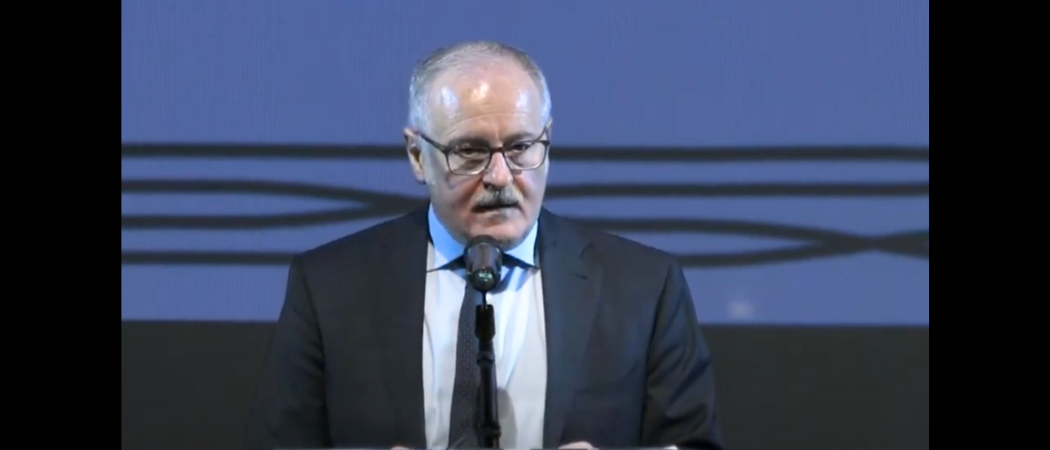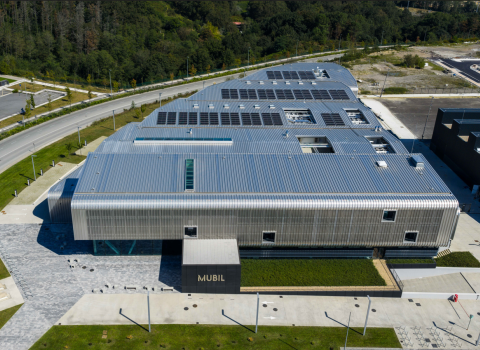The EU should not put restrictions on the use of chemicals until alternatives are available. And companies need more help to plot the route to a more sustainable future, says a leading Italian textile manufacturer

Paolo Canonico, global technical and R&D director at Saati. Photo: Saati
Wide-scale disruption is ahead for the European textiles industry, with the far-reaching Green Deal legislation threatening to undermine the sector’s viability, says Paolo Canonico, global technical and R&D director at Saati, a company which develops specialised textiles for use in a range of industries.
The green agenda provides “a great opportunity for innovation,” but Canonico said, Europe must not move too hard and fast in putting restrictions on the use of chemicals that are essential to textile manufacturing, because as things stand there are no alternatives.
“Everybody is in favour of green products,” he said. “But Europe cannot say this is forbidden without offering any alternative, or without fixing rules.”
In February 2023, five EU countries proposed banning all per- and polyfluoroalkyl substances (PFAS), otherwise known as forever chemicals, because they degrade very slowly and accumulate in the environment. The European Chemicals Agency (ECHA) is currently considering how best to evaluate the proposal.
The oil and water repellent properties of PFASs mean they are widely used in technical fabrics. The problem is, these chemicals have been linked to liver damage, thyroid disease, obesity, fertility issues and cancer, according to the European Environment Agency.
The European Commission’s 2020 Chemicals Strategy set the objective of phasing out PFAS in consumer products, “unless their use is proven essential for society.”
The proposed ban would potentially target more than 10,000 chemicals. One difficulty in doing this is that laboratories do not have the analytics to check for all 10,000, so proving a product is PFAS-free is impossible. “Let me know what I have to measure, and how I have to measure it,” Canonico said.
PFASs are used precisely because they are long-lasting. Even once they have been phased out, traces could remain on a production line. Any decision to ban PFASs will require agreement over acceptable levels of these residues.
There are PFAS-free coatings that have equal performance in terms of waterproofing, but none with equivalent oil repellent-properties, said Canonico. “The market doesn’t care. They say, it can be PFAS-free or not, I want the same performance,” he said.
However, some customers do not want to wait until a ban comes in to phase out the use of PFAS chemicals. In either case, the textile industry is under pressure to provide alternatives which do not exist, Canonico said.
Supply chain synergies
Despite the challenges, there are also opportunities for industry to develop sustainable alternatives. “You can no longer design any new product without considering the impact on the planet,” said Canonico. He suggests a cross-sector alliance is required to move things along. “Textiles alone cannot make a revolution, because textiles use materials. They use polymers, chemicals and technology.”
Nurturing connections between different sectors will create synergies and clusters across the supply chain. Such cross-innovation is at the heart of Saati’s product development, with a customer base that is spread across multiple sectors, enabling transfer of technologies and applications from one to another.
Examples include, filter fabrics for blood transfusion equipment, fabrics for bullet proof jackets and chemicals for manufacturing solar cells and mobile phones.
Canonico wants the Commission to engage more with larger companies. “We need to preserve small enterprises,” he said, “But big change is made by big companies, because they have the money, the structure, the infrastructure. Afterwards, the small companies can follow.”
Saati has participated in EU research projects, but Canonico says requirements for sharing intellectual property (IP) rights with consortium partners are a barrier. “For companies that are based on innovation, very often the IP makes the difference, but you need to be the owner of it,” he said.
Saati is not just a textile company, but also a chemical company, having stepped up its innovation activities in the field of membranes in recent years. These porous materials are useful for filtering liquids and particles, and for controlling air pressure.
Alongside specialised materials, the most visible arm of the textile sector, the fashion industry, is facing an environmental reckoning, which can create opportunities for innovation. The EU is funding projects to promote a circular textiles economy, including research into recycling discarded textiles into new clothes.
And in the case of the widespread use of PFAS in electronics, the EU’s Chips Act will support research into sustainable alternatives for semiconductor manufacturing.





 A unique international forum for public research organisations and companies to connect their external engagement with strategic interests around their R&D system.
A unique international forum for public research organisations and companies to connect their external engagement with strategic interests around their R&D system.